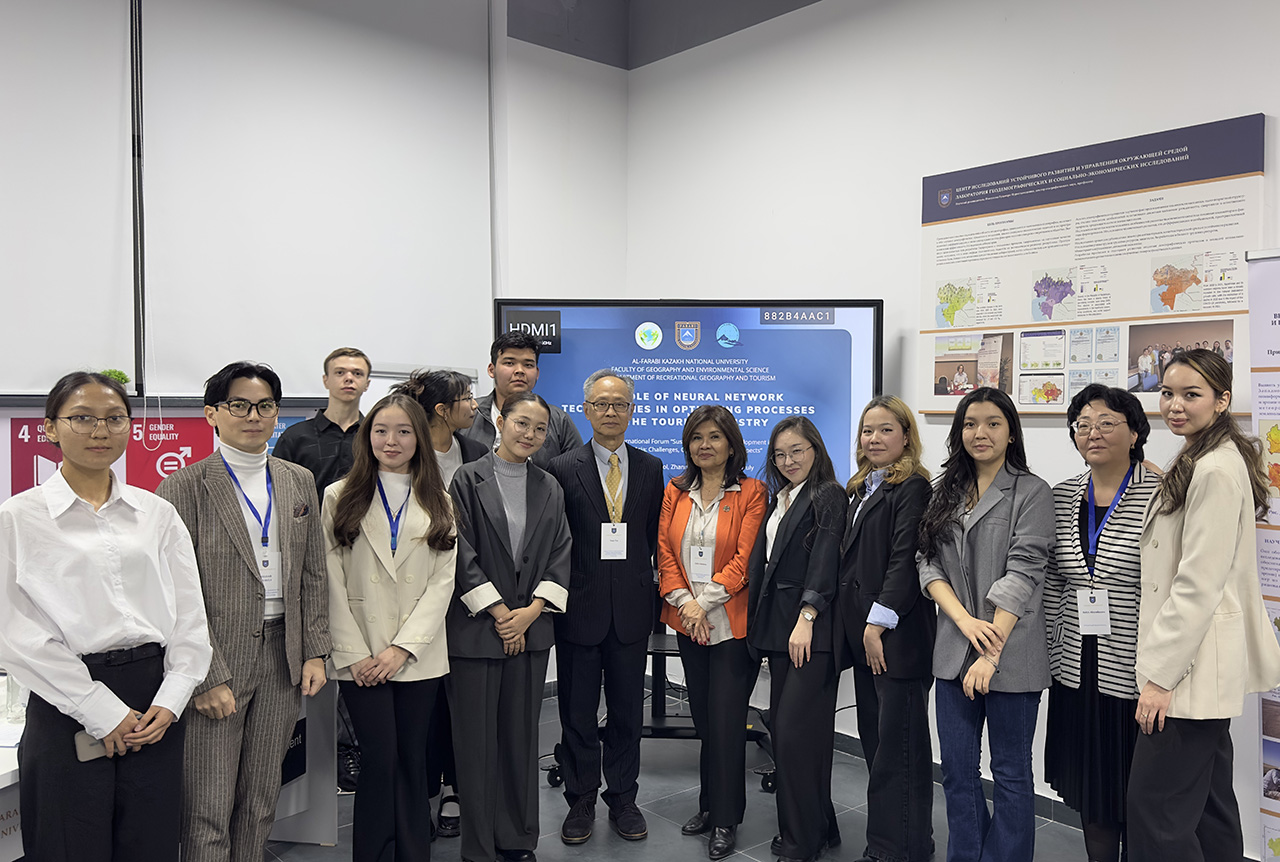DIGITALIZATION OF EDUCATION IS THE MAIN DIRECTION

The current state of education along with the trends of society development requires new approaches to the development of educational environment. One of the priority tasks of education modernization is informatization of education. Its main condition is the creation of a unified digital educational environment.
Digitalization of the education sector in Kazakhstan began in 1997 with automation, including through the spread of online learning. Due to the importance of digitalization in improving the country's competitiveness, the state program "Digital Kazakhstan" was approved on December 12, 2017. According to the content of this program Digitalization is the infrastructural and technological basis for optimization and acceleration of educational policy. Therefore, digitalization of the education sphere in the country is formed as a priority national direction. Modern technologies are being introduced into our lives at a steady pace, and we often hear the term "digitalization" not only at scientific conferences, but also in everyday life. Although some people still argue about the benefits and harms of the digitalization process, the trend of adopting modern technology is becoming more and more prevalent in many states. At present, internet and digital technology and resources are becoming the "infrastructural backbone" of the renewal of the education system. It is undeniable that the rapid development of science will lead to the fact that in the future the demand for specialists capable of working with the latest technologies will increase, and the need for personnel without specialized skills will not arise.
Digital educational environment should become a unified communication space for all participants of educational relations, an effective tool for managing the quality of educational programs and the work of teaching staff. It should also meet the requirements of interactivity, mobility, transparency, accessibility and provide digital tools for educational activities. Thus, the digital educational environment of the educational organization - taking into account modern trends of education modernization becomes a manageable and dynamically developing system of effective and convenient provision of information and communication services, digital tools to the objects of the educational process.
Digitalization is directly related to the provision of universities and schools with teaching aids through digital technologies, which were previously unavailable. The transformation that is taking place today in connection with the ongoing changes in the activities of educational organizations concerns the application of digital technologies not only in the management of universities, but also directly in the educational process. Digital transformation, characteristic of modern HEIs, forms all new requirements to the quality of human resources of HEIs. Online learning can be considered the most distinctive of them. It includes both blended forms of learning, i.e. the combination of watching lecture videos online and seminars at the university, and direct online courses - MOOCs (Massive Openline Courses).
Kazakh National University is a leader among universities in Kazakhstan in implementing MOOCs (Massive Open Online Courses) on the OpenEdx open platform. Since 2014-2015 academic year, the center of distance education of Al-Farabi Kazakh National University together with faculty members started to create MOOCs. For the first time in 2015, Associate Professor of the Department of Thermophysics and Technical Physics of the Faculty of Physics and Technology of our university V. Kashkarov as one of the presenters of MOOCs. Kashkarov as one of the leading Kaznu teachers started his first open classes "Physical Problems with V. Kashkarov" for a wide audience. This course was attended by students of 1-2 courses of our university, high school students of Nazarbayev Intellectual School, specialized physics and mathematics schools and secondary schools in different regions of Kazakhstan. Young people interested in the course are still improving their knowledge.
Nowadays among the leading scientific and educational centers and universities of the world it is customary to hold a competition to adopt the development and implementation of online courses of university faculties in order to increase the competitiveness and popularity of the university. The university faculty has the opportunity to create and place online courses on online educational platforms, including open online courses for basic educational programs on platforms kaznu, the National Platform of Open Education of Kazakhstan and foreign platforms (Coursera, edX, OpenEdu, etc.). Thus, Professor of the Department of Thermophysics and Technical Physics A. Turmagambetov (in co-authorship with senior lecturer of the department J. Seidulla) developed and implemented in the educational process open online courses for students of the 1st year of physics on the section "Mechanics", including lectures and seminars in the Kazakh language. Associate Professor of the department V. Kashkarov reads for a wide audience an open online course on the section "Mechanics" of his physics course. The department organizes seminars and master classes to disseminate the best practices of such leading specialists and to raise the individual level of digital culture and digital literacy of young people through the digital educational environment.
Along with educational activities, our university has launched online platforms for knowledge assessment. Teaching staff can choose any platform together with students and conduct the final control (exam). Thus, in IS Univer (information system) written (online), in IS Moodle (distance learning system) case assignment, essay, creative assignment, testing in IS Moodle, in Microsoft Teams or BigBlueButton, in IS Moodle orally (online), in IS Moodle orally protected project work (online), Comprehensive three-stage online testing in Moodle slag + abstract + oral, alternative exam on MOOCs, platform: Coursera, Stepik, edX, Udacity, etc.
Thus, the digital educational environment allows young people to make perfect use of Internet technologies on the way to education and becomes a modern and safe educational environment that ensures accessibility and high quality of education at all types and levels of education.
Aigul SARIEVA, Senior Lecturer, Candidate of Pedagogical Sciences.
Department of Thermophysics and Technical Physics
